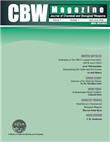Re-energising India-Iran ties
National Security Advisor M.K. Narayanan’s announcement at an international seminar that Iranian President Mahmoud Ahmadinejad would be converting what was originally meant to be a refuelling stop into an official stop-over in New Delhi on his way home from Sri Lanka generated much speculation about the reasons for and timing of the visit.
- Shebonti Ray Dadwal
- May 02, 2008







